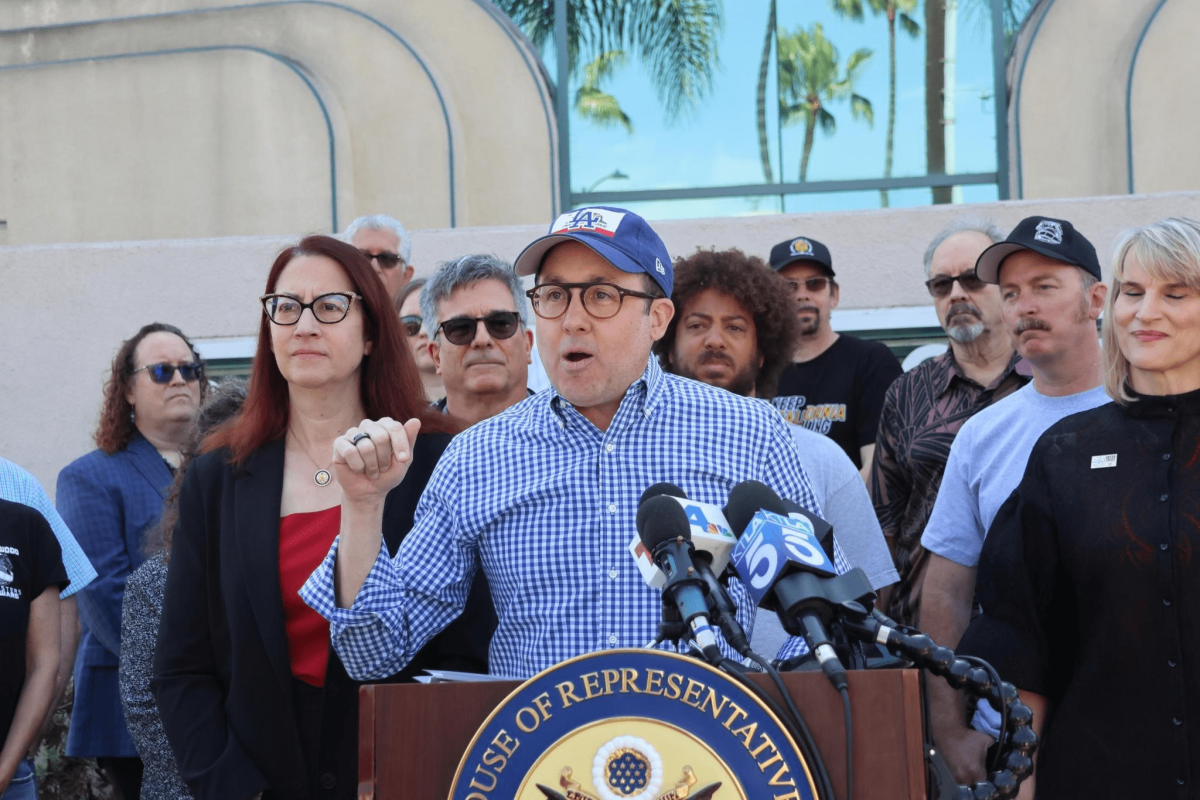POLITICO: Lights, camera, inaction? Trump's film tariff confuses Hollywood.

LOS ANGELES — President Donald Trump wants to show Hollywood the money.
Hollywood would like the president to show some specifics.
Trump’s Sunday evening vow to clamp punishing 100 percent tariffs on foreign film imports left movie studios, labor unions and California elected officials trying to assess how the president’s latest trade gambit — crafted with input from his Hollywood envoy Jon Voight — would impact the state’s faltering entertainment industry.
Rather than setting off another round of anti-Trump broadsides from an industry and a state brimming with Democrats, the move was met with bewilderment. (Voight’s publicist did not respond to a request for comment.)
Gov. Gavin Newsom initially took a wait-and-see approach, calling on the president to release “more details” before he’d weigh in.
By Monday evening, however, the governor took a more active tack, attempting to steer the policy discourse to more favorable terrain — tax credits, instead of tariffs, to spur production.
Newsom called on Trump to back a $7.5 billion federal tax incentive for the film industry — 10 times the amount he is currently striving to enact at the state level. (California’s current film tax credit is around $330 million annually, which lags behind states like Georgia with more generous subsidy programs.)
“We’ve proven what strong state incentives can do. Now it’s time for a real federal partnership to Make America Film Again,” Newsom wrote on X. The New York Times first reported Newsom’s new ask to Trump.
Rep. Laura Friedman, a Democrat who represents Hollywood and has worked as a film producer, questioned how Trump’s plan would work — whether, for example, it would apply when a single location is filmed overseas — and said a nascent legislative push for a national film tax credit would be a simpler and more effective way to prevent America from “losing a signature industry.”
“Fundamentally, how does this tariff work?” Friedman said in an interview. “A film is not something you can tariff like it’s a crate. Do you tariff the entire production of the film?”
Those details were not forthcoming from the White House on Monday. An administration official granted anonymity to discuss internal deliberations said the Commerce Department “is figuring it out” and would likely release a study. Trump himself deflected a question about the nuts-and-bolts of the tariff idea.
The head of the powerful SAG-AFTRA union, Duncan Crabtree-Ireland, said in a statement that the union was awaiting specifics. A representative for the California Film Commission referred to Newsom’s statement, and a representative for FilmLA declined to comment.
The Motion Picture Association, which represents the industry’s biggest studios, declined to comment on Trump’s pronouncement but noted that the trade group’s most recent economic impact report found the U.S. movie and TV industry ran a $15.3 billion trade surplus in 2023 and carried a positive trade balance in “every major market in the world.”
This isn’t entirely unprecedented territory. In 2001, a coalition of labor organizations petitioned the International Trade Commission to investigate possible tariffs on film and TV productions from Canada in response to Canadian subsidies ravaging the industry. The labor groups withdrew the request before the agency could make a determination, but a 2007 petition for USTR to probe whether the Canadian subsidies violated trade rules was swiftly rejected.
Now Trump is again firing a warning shot at foreign film industries. Laurence Farreng, a member of the European Parliament from French President Emmanuel Macron’s Renew party, predicted that “Americans will be the ones paying the bill.”
“I will be present at Cannes,” Farreng said, referring to the glitzy film festival that draws A-list actors, directors and producers to the south of France each summer, “and I believe that this subject will keep the producers very busy.”